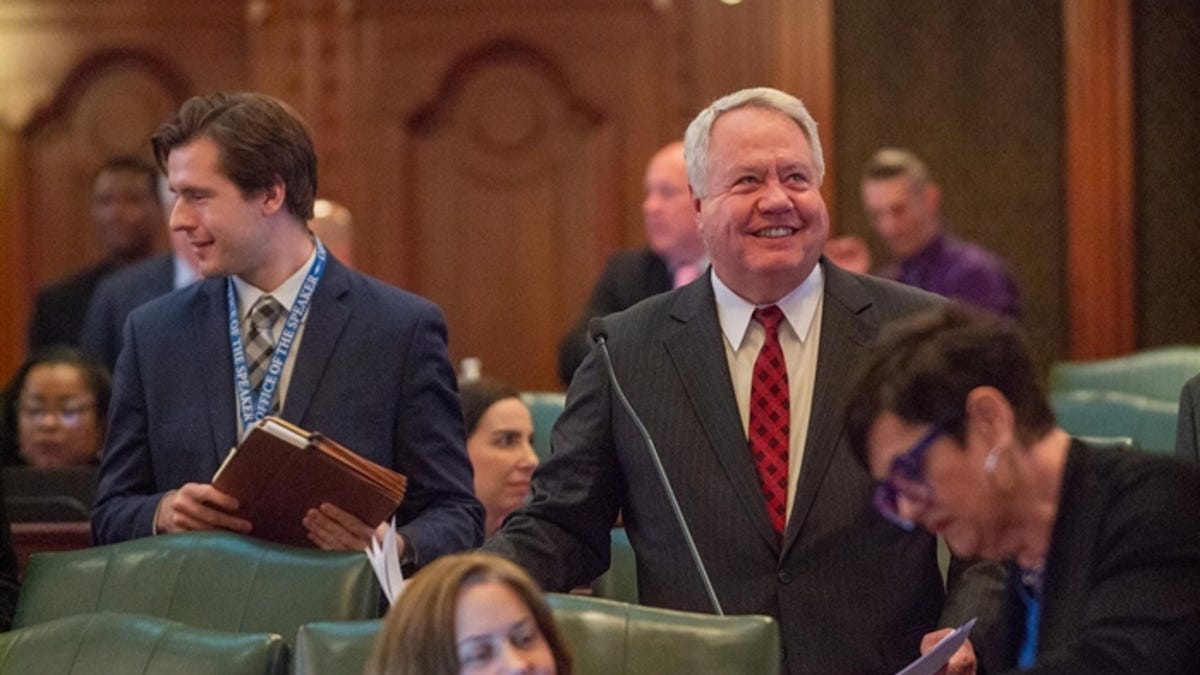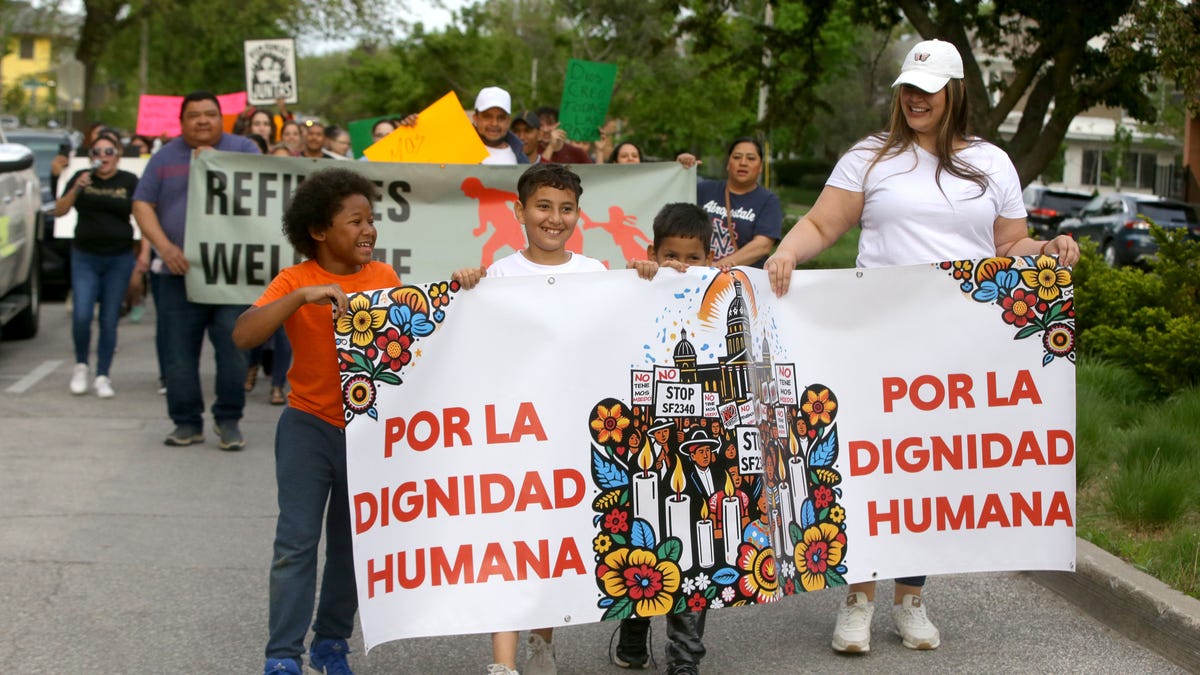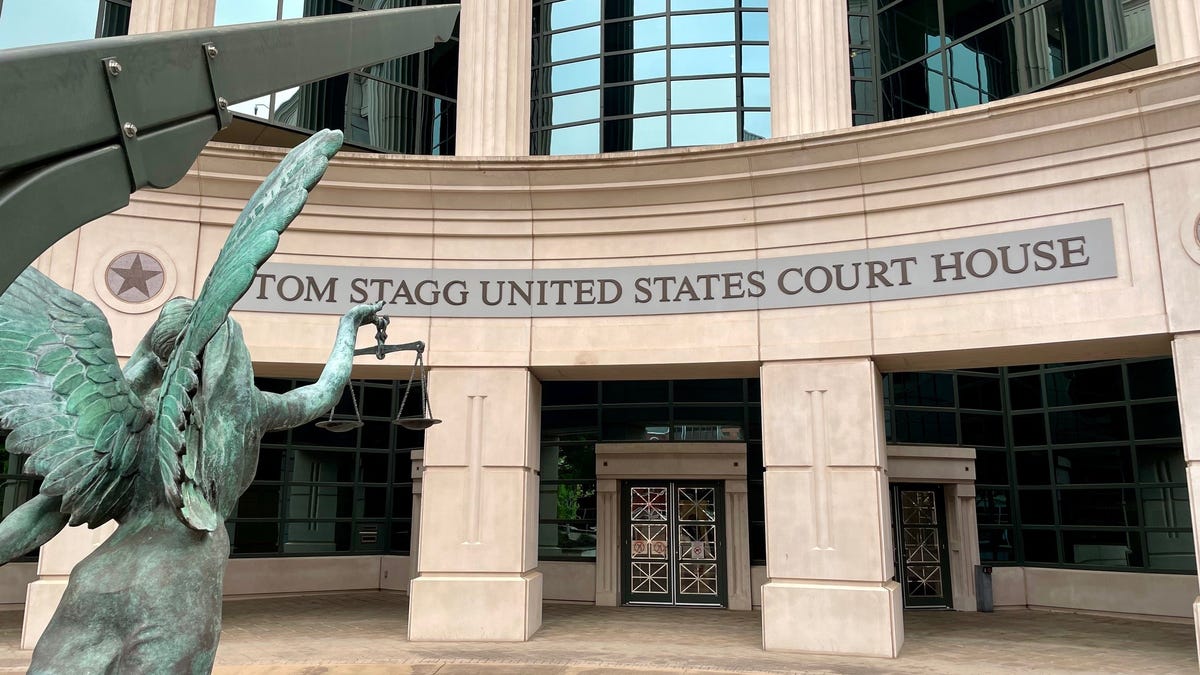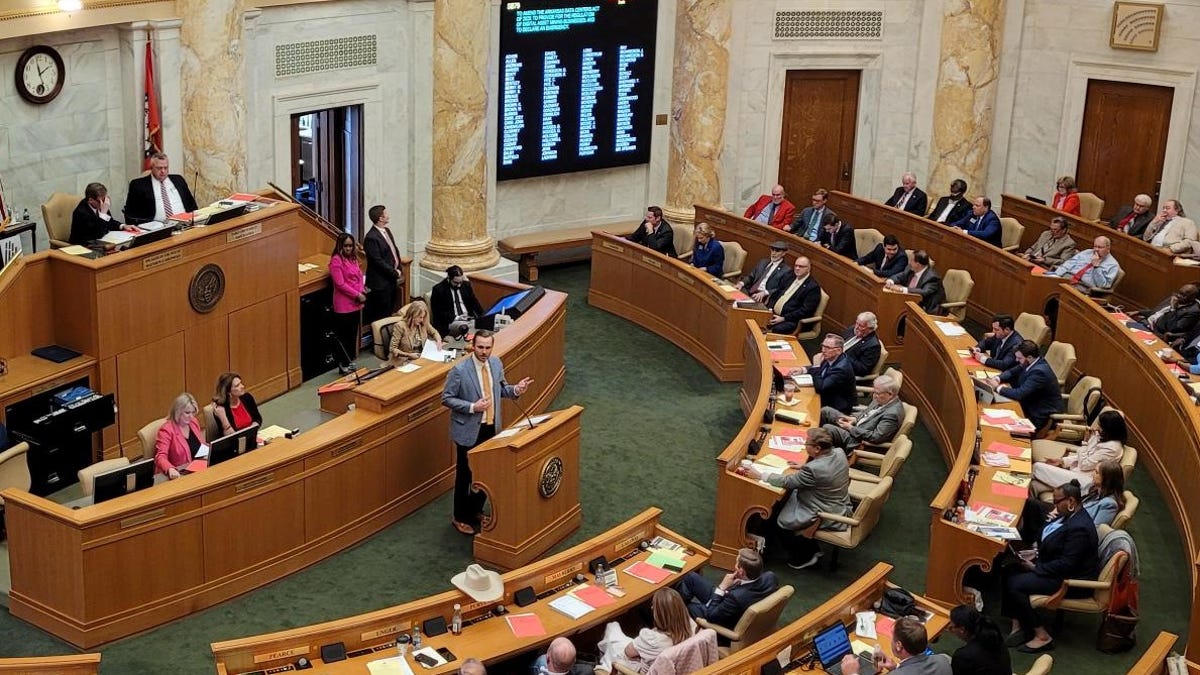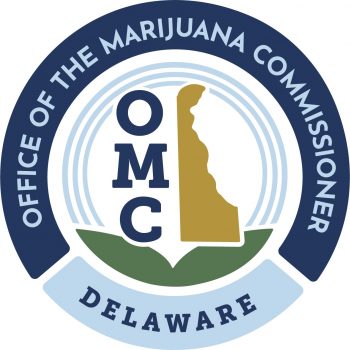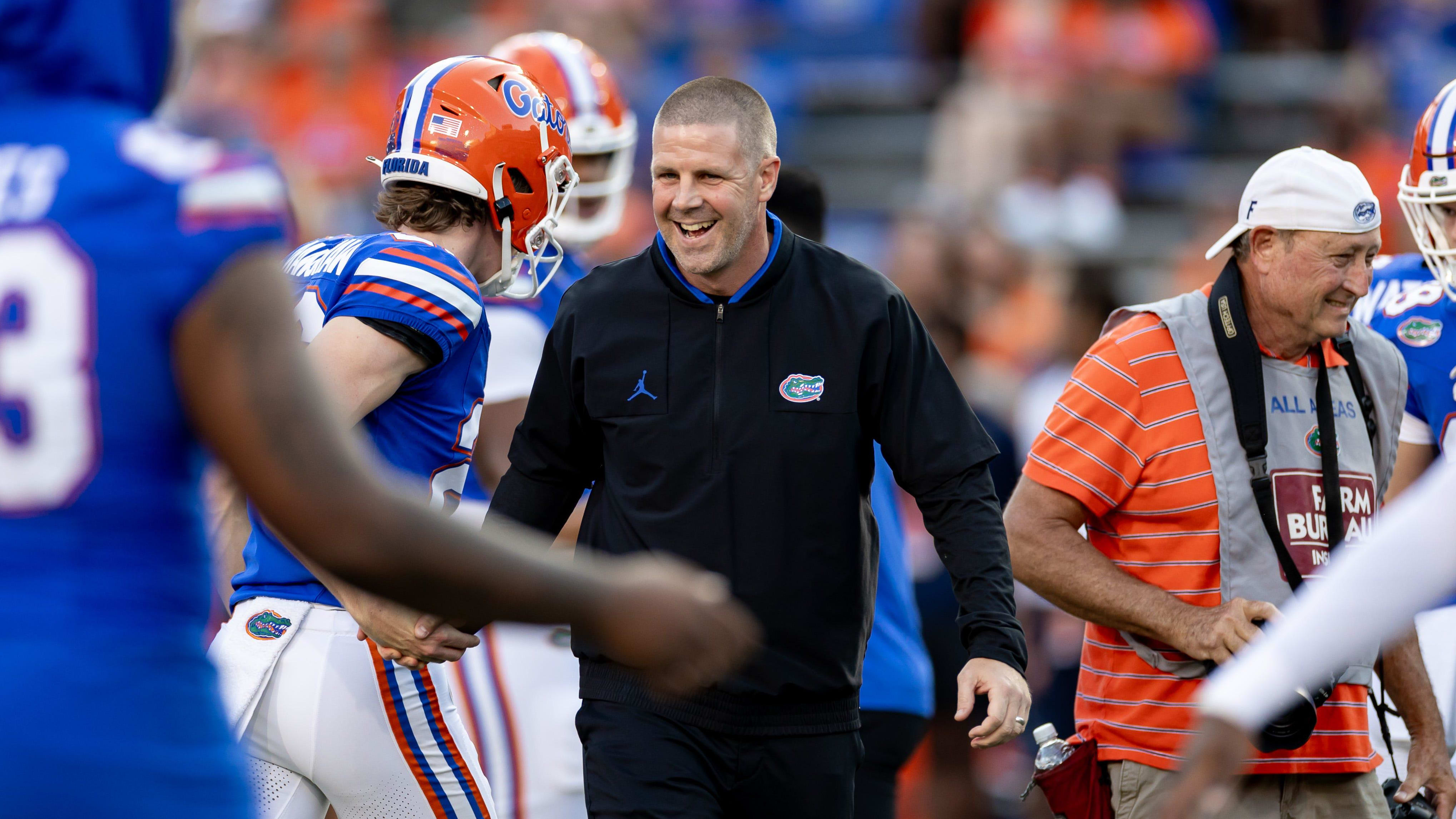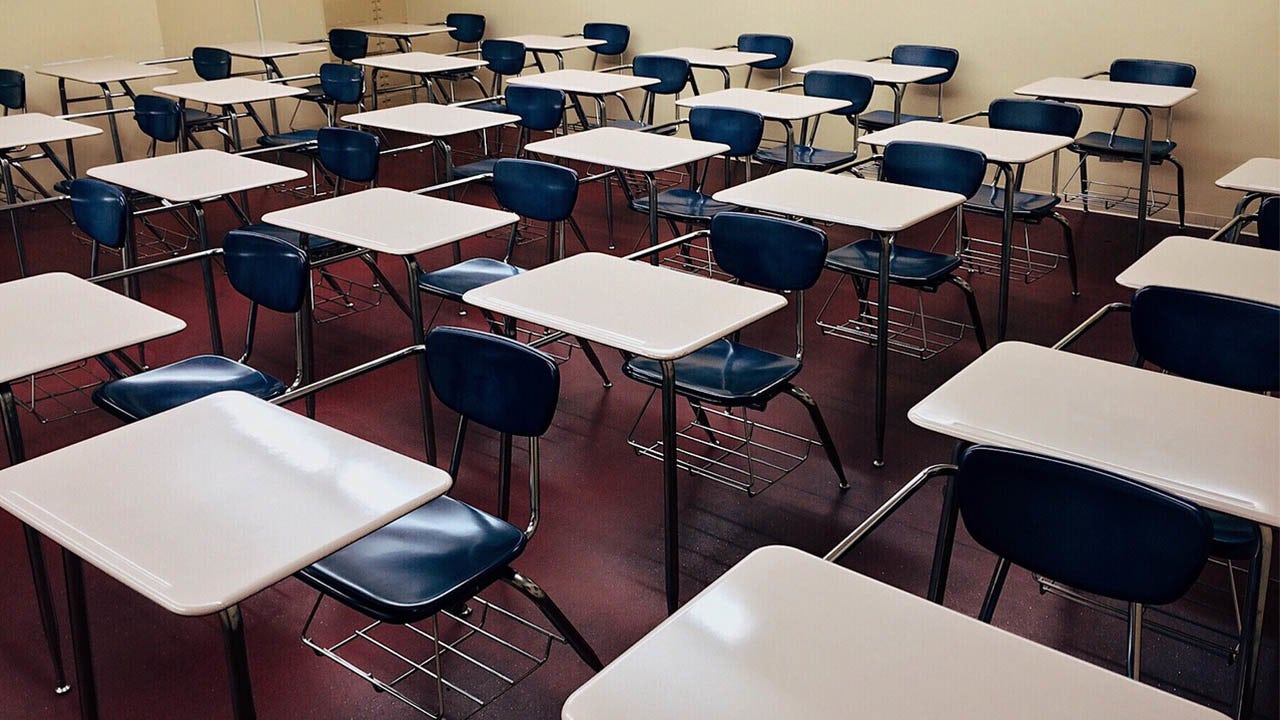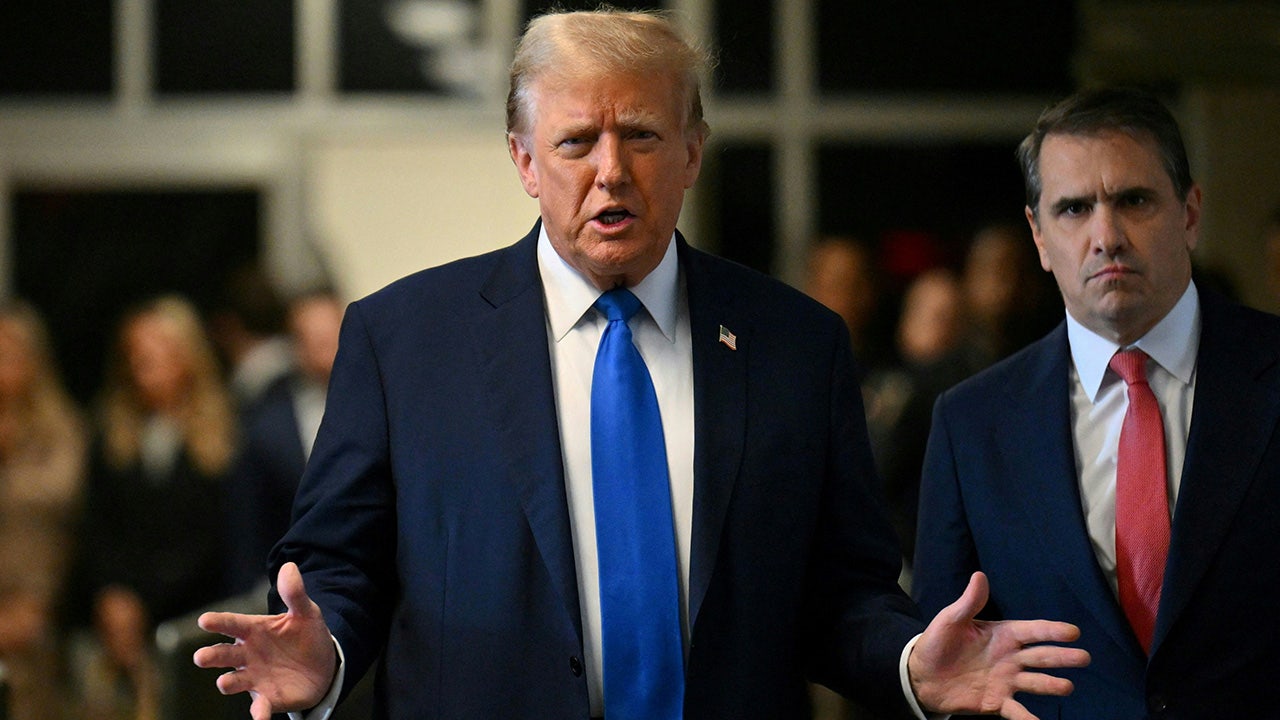Indiana
Bills to employ school chaplains, allow religious instruction move forward in Indiana legislature – Indiana Capital Chronicle

Lines between church and state blurred at the Indiana Statehouse on Wednesday as lawmakers gave the go-ahead for two education bills that seek to increase students’ access to faith leaders and religious instruction.
One proposal, House Bill 1137, would require schools to approve parental requests for students to leave school during the day for religious instruction. A separate measure, Senate Bill 50, could bring paid chaplains into Indiana’s public schools. Both bills advanced from their assigned committees and now head to the respective chambers for further consideration.
“Quite simply, this just gives the parent more control over their student,” said Rep. Kendell Culp, R-Rensselaer, who authored the House bill. “If the students can go off-site and learn character qualities, and become better students, they’re going to have a greater experience in the classroom, and I think that’s really important.”
In the opposite chamber, Sen. Stacey Donato, R-Logansport, said her bill can help traditional school counselors who are struggling to manage large caseloads and increasing numbers of students in need.
“We are just trying to provide another tool for schools to help with the production of great students … offering an option for a chaplain to come in and assist,” she said.
Guaranteed time for religious instruction
Culp’s bill aims to tighten existing Indiana law that already permits students to leave school for up to 120 minutes a week for voluntary religious instruction, as long as it takes place off school property, and private transportation is provided.
A 1952 U.S. Supreme Court ruling affirmed that“released time” programs are constitutional nationwide. As such, Hoosier parents can request religious instruction time for their child, but school administrators do not have to give approval.
Under the house bill, that “veto power” over the parent goes away, Culp said.
The bill — which passed unanimously — stipulates that when a parent of a public school student provides a written request, the principal “shall” allow the student to attend outside religious instruction that is organized by a church or religious organization.
The legislation also says a school principal must work “in a collaborative manner” with the parent to find the best time during the school day for a student to leave the school.
“That’s very important, because we don’t want to interrupt the school day with students leaving at multiple times,” Culp said. “It’s best to work together to make sure that we don’t have an interruption of that critical instruction that takes place during the school day.”

An amendment to the bill adopted on Wednesday additionally clarifies that students who are habitually truant — those who have 10 or more unexcused absences — would not automatically qualify for religious instruction release. Students must also “be in academic good standing,” though lawmakers said they could amend that language on the House floor to be more specific.
“I want to give kids this opportunity, for sure. But I want to make sure that they’re not behind — or contribute to falling further behind,” said Rep. Bob Behning, R-Indianapolis, who chairs the House education committee.
Multiple organizations around the state — mainly Christian-centered — offer out-of-school curriculum for religious teaching, Culp said.
One of those, Ohio-based LifeWise Academy, currently serves more than 80% of elementary schoolers in northwest Indiana’s West Central School Corporation.
“These programs emphasize character,” said Dennis Guttwein, who serves on the district school board. “Teaching from the Bible — it is full of character that is sorely lacking in our society today. Things like honesty, humility, integrity, patience.”
The program is now in its third year at West Central. Guttwein said students are allowed to leave school once a week, during a designated “library time.”
Joel Penton, founder and CEO of LifeWise, said the program actively serves more than 300 schools across more than a dozen U.S. cities. nationwide. Every week, nearly 30,000 public school students attend LifeWise Bible classes, he noted.

“We know that parents desperately want Bible education for their students as part of their public school day,” Penton said. “However, we’re aware that it’s simply not feasible for many, many of those families.”
He emphasized that LifeWise is “entirely voluntary,” and “zero core academic classes are missed” by students who choose to attend.
When asked why the programming couldn’t take place after school, Penton maintained that many students still need to catch the bus to get home, and others are already involved in after-school extracurriculars.
He said, too, that non-participating students and families “are not really affected in any meaningful way.”
But Chris Lagoni, executive director of the Indiana Small and Rural Schools Association, said it’s difficult to avoid disruptions in a school when dozens — even hundreds — of students are leaving for an organized program.
“We have to be careful. Let’s say the Archdiocese comes to the table and says, ‘Well, we’d like to offer our own program, and the local mosque comes forward and says, ‘Well, we’d like to own our own program,’” Lagoni said in an example. “Looking down the road, how do you implement this when you’re dealing with multiple entities that are trying to get everybody to the table to agree upon a time that works and has minimal instructional interruption?”
Lagoni also recommended an amendment to ensure students can not leave school during state standardized testing times.
Lisa Tanselle, general counsel for the Indiana School Boards Association (ISBA), said the organization representing all 290 school corporations across the state is opposed to the bill.
“We want to preserve the academic day for students. That doesn’t mean we are opposed or don’t appreciate the value of religious instruction,” she said. “This statute is designed to allow individual parents the opportunity to come to school officials and request release time for their students for up to 120 minutes. We believe that the current statute is working, and those requests are being accommodated for the vast majority of parents that make the request.”
Secular support throughout Hoosier schools
Testimony and discussion in the Senate education committee proved more tense.
Donato said her bill aims to give schools “an option to add additional resources for emotional needs of students.”
Chaplains can already volunteer at public schools. The measure makes clear they can be employed to provide “secular support” to students and school employees, given they have a master’s degree in divinity, theology, religious studies, or a related field, as well as two years of “counseling experience.”

Donato further emphasized that chaplains “must follow the same rules as school counselors,” including mandatory reporting of child abuse — although the bill does not say so, explicitly.
ISBA executive director Terry Spradlin said the bill “is structured in a good way” to give school districts a “local option” to hire or receive chaplains as volunteers.
Representing the Indiana School Counselors Association, Scott Carr said the group supports the proposal, but recommended additional language to ensure that chaplains who work with students are familiar with the developing brain counseling of adolescent children.
He pointed to similar bills that have already moved forward in states like Ohio and Texas.
Although Donato maintained that students don’t have to meet with a chaplain or traditional school counselor if they don’t want to, conservative attorney Jim Bopp — who testified in support of the bill — read the language differently.
“Children have very limited legal and developmental competency to make decisions for themselves. The vast majority of decisions are made by parents — and this is one that they are perfectly competent and capable of, and in the best interest of the children, would consent to. And it doesn’t matter that the kid doesn’t want to,” Bopp said. “The kid doesn’t want to go to church on Sunday morning. Is that child abuse to say, ‘Okay, Johnny get up, and we’re taking you into church?’”
The provision in question dictates that a student, employee or parent can additionally permit a chaplain to provide “nonsecular advice, guidance and support.”
Democrats held that could go against the wishes of a student or parents “who aren’t on the same page.”
Chris Daley, executive director of the American Civil Liberties Union (ACLU) of Indiana, agreed, saying language in the bill that allows parents to direct a chaplain to provide religious counseling to the students “is a form of coercion outside of the school environment.”
“That is a liberty issue that we do believe infringes on the constitutional rights of those students,” Daley said.
“Focusing this only on chaplains and not other members of the community who would like to fill this role, certainly does implicate Establishment Clause issues,” he continued, referring to the First Amendment. “Indiana has chaplains in any number of areas of public life. We do not have them in our schools in an official capacity for exactly this reason.”
Members of the minority caucus voted against the measure in committee and said they would rather focus directly on Indiana’s ongoing school counselor “crisis.”
A ‘crisis’ of their own: Indiana school counselors detail overwhelming duties, pushing some out
Gray Lesesne, pastor at Christ Church Cathedral in Indianapolis, also pushed back, telling lawmakers he feels “no way prepared or qualified — either academically or professionally — to serve as a secular counselor or academic advisor or a chaplain in a public school.”
He said most seminaries do not require courses in counseling childhood or youth psychosocial development.
Lesesne said he worried the legislation would also make it difficult for chaplain to maintain “appropriate professional boundaries.”
“Even if I were to dispense secular advice to a young person as a chaplain, they would have a difficult time separating me from my role and calling, and could interpret that as religious counseling — whether that was intended by me or not,” he said. “I believe there is a place for clergy and people of faith in schools, and that is serving as a volunteer. … That is what chaplains are trained to do. We are not licensed, trained or called to serve in secular settings, or as mental health professionals or counselors.”
GET THE MORNING HEADLINES DELIVERED TO YOUR INBOX

Indiana
Indiana Basketball Transfer Portal Watch List: May 2, 2024
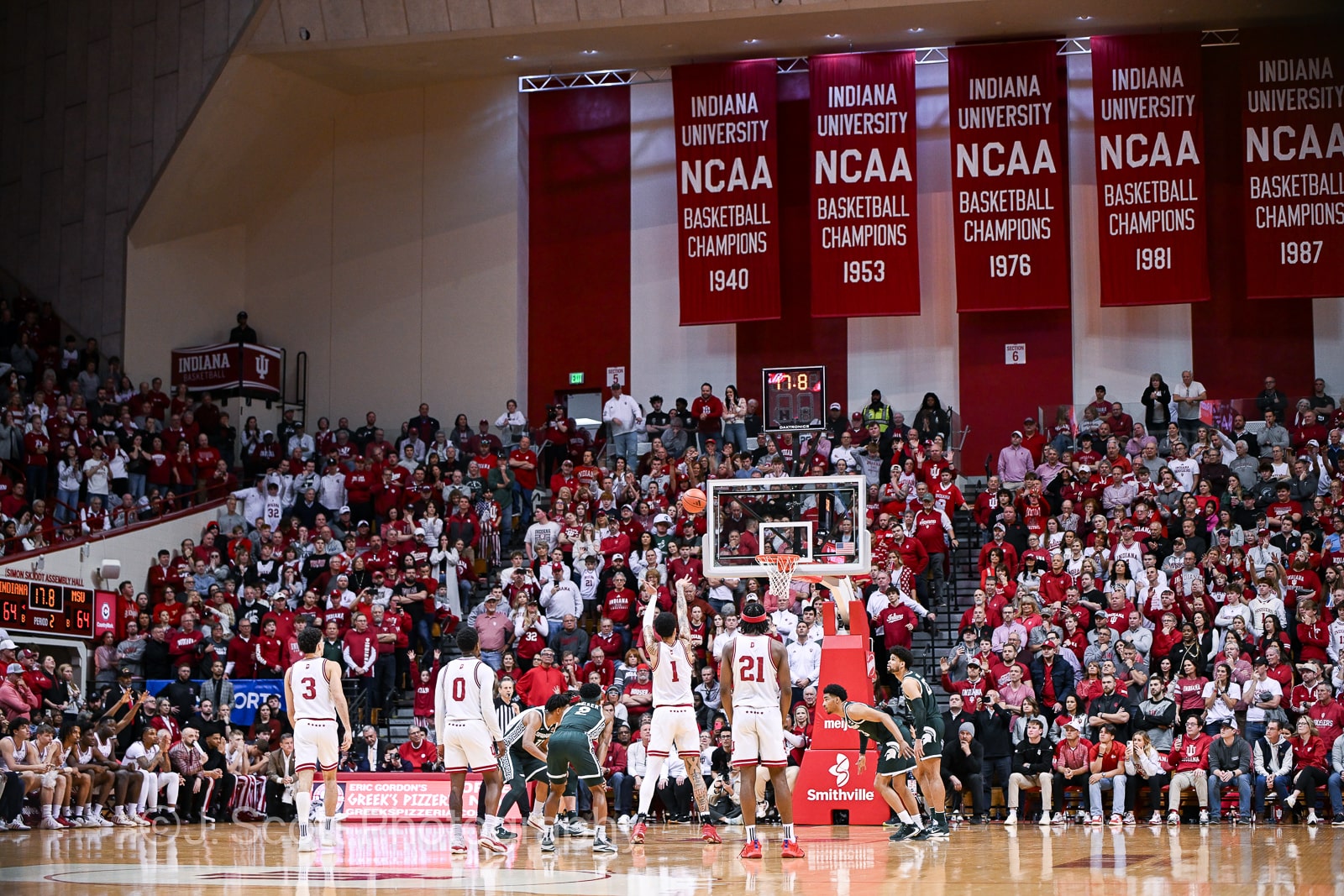
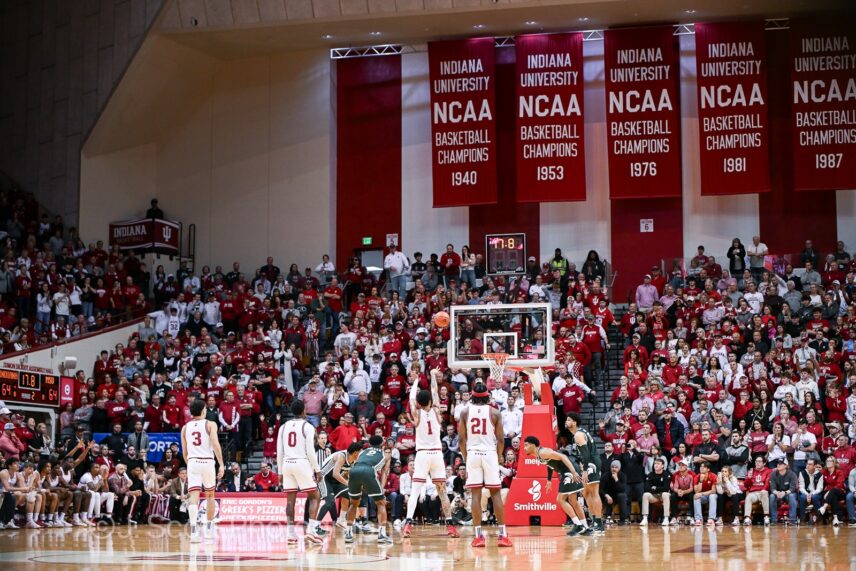
The 45-day window to enter the transfer portal is now over.
Indiana currently has four transfer portal commitments and two scholarships open on the 2024-25 roster.
Open scholarships as of May 2: 2
Signed with Indiana
Kanaan Carlyle, Stanford, 6-foot-3, guard
2023-24 stats: 11.5 points, 2.7 rebounds, 2.7 assists in 25.6 minutes per game. Shot 32 percent on 3s and 77.6 percent from the free throw line.
Years of eligibility remaining: 3
Hometown: Atlanta, Georgia
Scouting video: Link
Luke Goode, Illinois, 6-foot-7, forward
2023-24 stats: 5.7 points, 3.6 rebounds in 20.1 minutes per game. Shot 38.9 percent on 3s and 65.2 percent from the free throw line.
Years of eligibility remaining: 1
Hometown: Fort Wayne, Indiana
Scouting video: Link
Myles Rice, Washington State, 6-foot-3, guard
2023-24 stats: 14.8 points, 3.8 assists, 3.1 rebounds, 1.6 steals in 33.2 minutes per game. Shot 27.5 percent on 3s and 81.1 percent from the free throw line.
Years of eligibility remaining: 3
Hometown: Columbia, South Carolina
Scouting video: Link
Oumar Ballo, Arizona, 7-foot, center
2023-24 stats: 12.8 points, 10.1 rebounds and 1.3 blocks in 25.9 minutes per game. Shot 65.8 percent from the field and 49.5 percent from the free throw line.
Years of eligibility remaining: 1
Hometown: Koulikoro, Mali
Scouting video: Link
Indiana transfer portal prospects
Alex Hemenway, Clemson, 6-foot-4, guard
2023-24 stats: 5.2 points and 1.4 assists in 16 minutes per game. Shot 38.1 percent from the field and 42.1 percent on 3s.
Years of eligibility remaining: 1
Hometown: Newburgh, Indiana
Scouting video: Link
Langdon Hatton, Bellarmine, 6-foot-10, forward
2023-24 stats: 10.5 points, 7.1 rebounds and 1.3 assists in 27.8 minutes per game. Shot 48 percent from the field and 67.5 percent from the free throw line.
Years of eligibility remaining: 1
Hometown: Georgetown, Indiana
Scouting video: Link
Nikita Konstantynovskyi, Monmouth, 6-foot-10, forward
2023-24 stats: 9.3 points and 8.1 rebounds in 23.5 minutes per game. Shot 52.6 percent from the field and 65.2 percent from the free throw line.
Years of eligibility remaining: 1
Hometown: Kyiv, Ukraine
Scouting video: Link
Committed elsewhere/no longer in the mix: Michael Ajayi, Dishon Jackson, Marcus Foster, Ja’Kobi Gillespie, Jordan Sears, Skyy Clark, Zeke Mayo, Brandon Huntley-Hatfield, Frankie Fidler, Clark Slajchert, Marques Warrick, Dakota Leffew, Darlinstone Dubar, Deyton Albury, Davonte Davis, Gibson Jimerson, Keyshawn Hall, Malik Dia, Otega Oweh, Tre Dinkins, Tony Perkins, Aaron Bradshaw, Connor Hickman, Amari Williams, Ryan Conwell, Cade Tyson, Adou Thiero, Jalen Blackmon, Javon Small, Pharrel Payne, Leland Walker, Elijah Malone, Ben Humrichous, Zach Anderson
Filed to: Transfer portal
Indiana
Colwell: Tuesday’s primary could draw national attention, but nothing like 2016.

Indiana’s presidential primary could draw some national attention, even though the results Tuesday will mean nothing in terms of selecting the nominees.
There certainly won’t be national news of the magnitude of eight years ago, when Donald Trump ended the last chance of the “Stop Trump” movement, solidly defeating Ted Cruz and winning all 57 delegates at stake in the state’s Republican primary.
Now, there will only be a look at percentages in the Republican primary and analysis of what, if anything, it means for November if Nikki Haley gets a significant protest vote.
While both Trump and President Joe Biden long ago won more than enough delegates for nomination, their names will be on the Indiana ballot Tuesday — Biden unopposed in the Democratic primary; Trump listed along with Haley, who quit campaigning two months ago, on the Republican side.
Haley qualified for the Indiana ballot before she was clobbered by Trump in the March 5 Super Tuesday primaries and suspended her campaign.
More Colwell: The choice is clear, even if it’s not an ideal one.
Since Haley is out of the running, votes for her in Republican primaries are seen now as indication of unhappiness with Trump and a sign of possible defections from him in the fall.
The recent Pennsylvania Republican primary results were regarded as troubling news for Trump, with 155,000 voters —16.5% of the GOP turnout — declining to vote for their presumptive nominee and instead picking Haley.
It seems unlikely that Haley will get a percentage that high in Indiana, where Trump has been so popular with Hoosier Republicans in his two presidential races.
Even if she did, it wouldn’t mean as much as that showing in Pennsylvania, a key state in determining the winner in the Electoral College. Republican defections there could be decisive. Indiana, however, is listed in all projections as in the Trump column for sure in the fall.
Signs of defections here would be viewed not in terms of suggesting some monumental upset in the fall in Indiana, but as an indication that Trump’s base might not be as solid nationally if slipping even in Indiana.
What if Haley’s total isn’t in double digits or barely gets there? That would bring analysis that Trump’s base remains solid.
Column: A Biden-Trump rematch in 2024? Say it isn’t so
No matter what happens in Indiana on Tuesday, any news nationally will be small potatoes, really just potato peels, in comparison with that 2016 presidential primary.
Indiana Republican primary voters cinched it — Trump would be the nominee. Cruz was in a “must win” situation to keep Trump from a first-ballot win at the Republican National Convention and keep alive the diminishing hopes of “Stop Trump” success in a brokered convention going into multiple ballots.
Cruz pulled out all the stops, even making a deal in which another contender, John Kasich, would stop campaigning in Indiana and let Cruz go more one-on-one against Trump. Cruz also got an endorsement from then-Gov. Mike Pence.
Polls showed Trump ahead, but not by a lot. Trump was not that confident of victory, complaining that the Indiana election system was “rigged” because he couldn’t control his Hoosier delegates on a second convention ballot.
Results: Cruz, needing a big win to stay viable, didn’t win a single delegate. Trump won so big all around the state that he claimed all 57 delegates. Cruz gave up. There was no way left to stop Trump. The nomination was decided.
And Pence, whose endorsement of Cruz had been tepid and not harmful to Trump, wound up running for vice president on the ticket to appeal to evangelical voters.
In 2020, the traditional May primary was delayed until June 2 by the pandemic. Trump, then president, faced only token opposition from Bill Weld, a former Massachusetts governor. Trump got 91.9% of the Republican vote. If he comes close to a percentage like that on Tuesday, Trump will be buoyed, not troubled by the results.
Jack Colwell is a columnist for The Tribune. Write to him in care of The Tribune or by email at jcolwell@comcast.net.
Indiana
Indiana Michigan Power need help naming falcon chicks on tallest building in Fort Wayne

FORT WAYNE, Ind. – The tallest building in Fort Wayne is now home to four peregrine falcon chicks, and Indiana Michigan Power needs your help naming them.
Falcon Moxie and her mate Jamie welcomed four chicks this spring, laying her first egg on March 11.
I and M officials say the Teens for Nature Program at Fort Wayne Children’s Zoo compiled a list of names.
- Tom
- Cindy
- Erie
- Linden
- April
- River
- Shelley
- Aster
- Peony
- Bradley
- Vera
- Wane
- Mary
- Anthony
- Henry
- Daisy
- Johnny
- Apple
- Hoosier
- Storm
Tom and Cindy are currently at the top, memorializing the late Fort Wayne mayor and his wife.
Voting is open now through May 15.
The official names will be announced then on May 17.
You can cast your vote here.
-

 News1 week ago
News1 week agoLarry Webb’s deathbed confession solves 2000 cold case murder of Susan and Natasha Carter, 10, whose remains were found hours after he died
-

 Education1 week ago
Education1 week agoVideo: Dozens of Yale Students Arrested as Campus Protests Spread
-

 World1 week ago
World1 week agoHaiti Prime Minister Ariel Henry resigns, transitional council takes power
-

 News1 week ago
News1 week agoFirst cargo ship passes through new channel since Baltimore bridge collapse
-

 World1 week ago
World1 week agoUS secretly sent long-range ATACMS weapons to Ukraine
-

 World1 week ago
World1 week agoSpanish PM Pedro Sanchez suspends public duties to 'reflect'
-

 News1 week ago
News1 week agoAmerican Airlines passenger alleges discrimination over use of first-class restroom
-
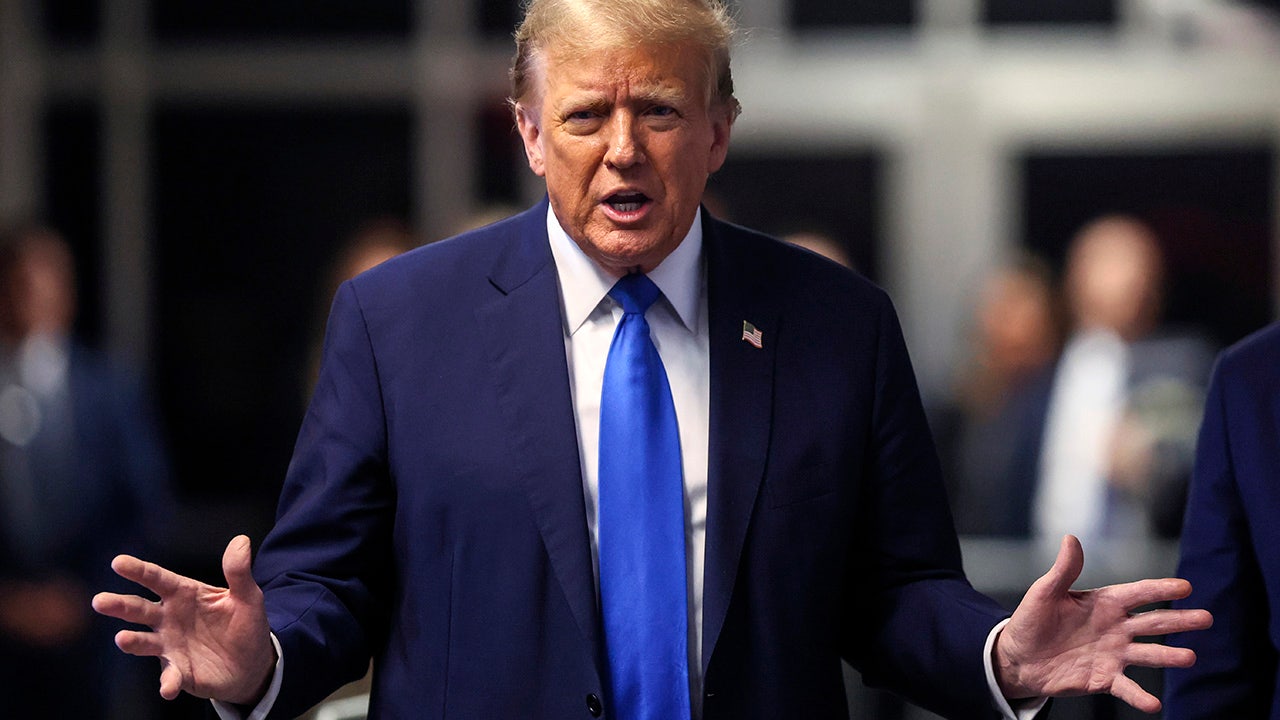
 Politics1 week ago
Politics1 week agoTrump rails against Manhattan DA Bragg, says 'numerous other agencies' didn't push case
